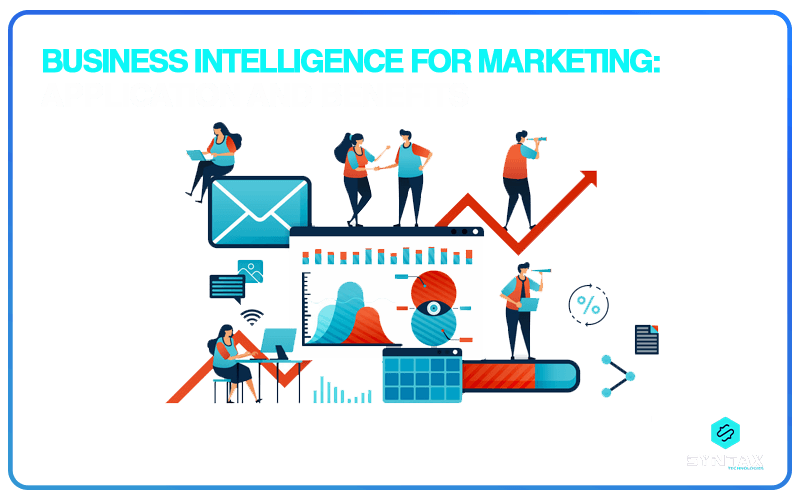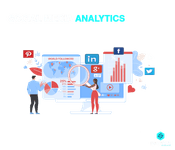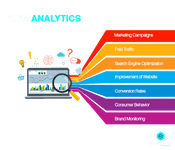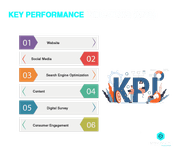Don’t push people to where you want to be; meet them where they are. – Meghan K. Anderson (VP Marketing, HubSpot)
The given statement by Meghan Anderson, points at the fundamental idea of what modern Marketing is all about. Gone are the days when sellers could afford to remain in their comfort zones, hoping for the buyers to reach out to them. In modern times, it is imperative for you as a seller to reach out to your existing customers as well as identify potential consumers for creating a demand for your product. This is where the phenomenon of Marketing comes in. It is the process for making your product known to the world. While marketing can be carried out in various ways; the digital marketing age has revolutionized the field of marketing like never before. Using Business Intelligence for Marketing is gradually evolving as an organizational necessity for most Companies as it enables them to expand their reach and advertise their brands in the best manner possible.
In this blog, we will look at the importance of using Business Intelligence for Marketing. We will consider the ways in which BI has helped transform Sales and Marketing as well as look at some of the crucial benefits which come from using Business Intelligence for Marketing.
What is Business Intelligence?
Business Intelligence can be understood as a combination of Data Analytics and the processes of data collection, data storage and data management. The objective is to assess and transform raw data and information into actionable and meaningful insights. These insights have a positive impact on the different kinds of business decisions of the organization.
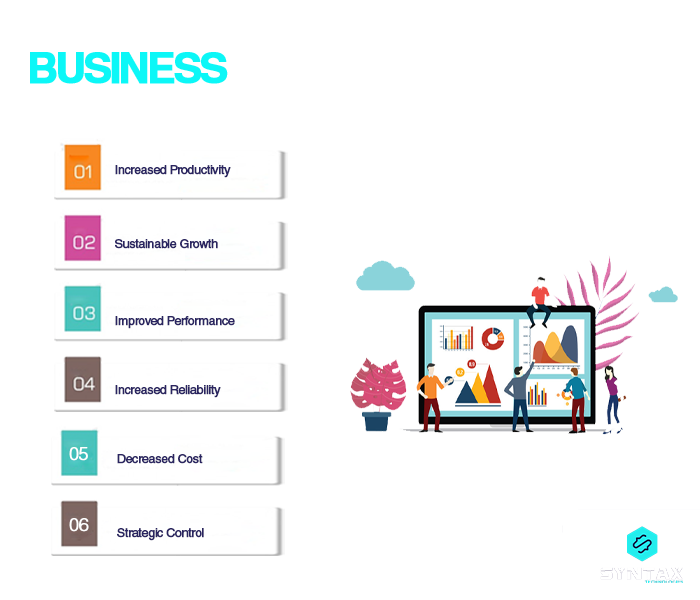
How is Business Intelligence being used in Marketing?
In this section, we will look at the way in which the application of Business Intelligence in the field of marketing has helped transform the sector into a data-driven industry. This is largely because Data Analytics has helped track the efficiency of marketing teams initiatives through ideas like click-through rates, website traffic, social media engagement, movement of potential clients around the website, and so on. Analyzing this data with the help of BI tools, not only helps in improving marketing campaigns but has also resulted in data-driven decision making. Thus, Business Intelligence for Marketing not only helps in precise targeting of customers but also in identifying the best or the least selling products, in locating marketing channels responsible for most conversions as well as in keeping track of customer interaction data and sales history data.
Let us look at some of the ways in which Business Intelligence is applied to the field of Marketing.
- Predictive Analytics
This involves analyzing business data in order to predict future trends. Business Intelligence for Marketing helps in making tentative forecasts on the best course of future action by analyzing the past behavior of customers as well as the existing trends. Predictive Business Analytics can also be utilized for acquiring a sense of the best products to be marketed as well as in improving customer engagement efforts. This is because, by way of understanding client behavior better, companies are often in a better position in understanding future customer needs.
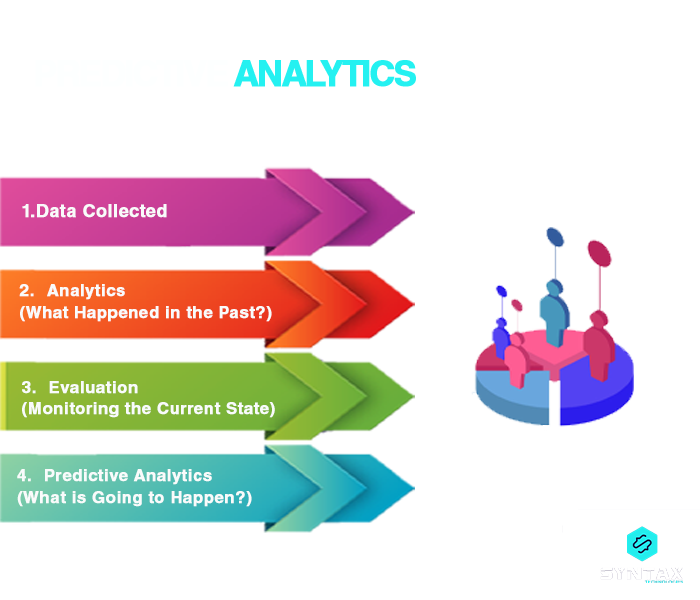
- Social Media Analytics
Business Intelligence for Marketing, aiming at Social Media Analytics makes use of data pertaining to the activities of the consumers across social media platforms. Since the time spent on these platforms has increased tremendously over the years; such data can be valuable pieces of information regarding the behavior and interests of the consumers as well as their thought process. Using BI, marketers can exploit the power of social media in different ways. For instance, they can acquire customer feedback through social media polls; they can generate increased customer engagement through posts which invite likes and comments; as well as they can use the social media platform for redirecting traffic to their websites and invite subsequent conversions.
- Web Analytics
It is another component of Social Analytics, the other being Social Media Analytics. Web Analytics serves as a crucial window for acquiring an in-depth understanding about people visiting your company’s website. Business Intelligence can help in knowing individuals who happen to visit your website, the channel through which they are being directed to the site as well as their activities after they encounter the website. This is crucial not only in terms of evaluating the efficacy of marketing campaigns which might have succeeded or failed in bringing the traffic; but also gives an idea of the most engaging part of your website. This can help in taking efforts for further improvement of the content of a particular portion of the site.
- Effective Sales Strategy
Business Intelligence for Marketing can be of great use when it comes to preparing an effective sales strategy. For instance, it is crucial to collect as much information as possible about a company before pitching them. A Business Intelligence tool can be extremely helpful in providing a detailed report of the target company, ranging from its budget plans, sales numbers, future expansion plans and so on. The sales pitch is prepared on the basis of this report.

- Marketing Key Performance Indicators (KPIs)
KPIs are important yardsticks used by marketers for assessing the efficacy of marketing campaigns. Factors such as cost per lead, funnel conversion rates, Email unsubscribe rate, the source of the most valuable leads, source of the most expensive leads and so on, can serve as crucial insights on the question of resource allocation as well as give us a fair idea of how the marketing campaigns are faring in reality. This analysis can be presented in the form of understandable visualizations and dashboards with the help of BI tools. These report metrics which are important products of using Business Intelligence for Marketing can serve as powerful tools in improvising upon existing marketing strategies as well as in optimum allocation of resources.
- Consolidation of Customer Data
The mere presence of data in huge quantities is not enough. Most of the data is present in unrefined and unstructured forms and is not suitable for analysis. It is important to unify all these scattered data into accurate information which can inform business decisions. Business Intelligence for Marketing with the help of tools like Data Warehouse can be crucial in consolidating these data into a single format. Such a unified whole can be beneficial in terms of increasing customer engagement by providing information on the efficacy of marketing campaigns across platforms.
Business Intelligence for Marketing: Its Benefits
Business Intelligence does have immense benefits for marketers, precisely in terms of deriving valuable insights from data which could help in driving business decisions. In this section, we will look at some of the most important advantages which come from using Business Intelligence for Marketing.
- Effective Customer Experience
The client centric model of business is based on the idea that the customer is the king. This means that your business should mold itself in accordance with the needs of the consumers. But, how will you know these needs? Business Intelligence for Marketing helps in achieving this goal. Business intelligence tools help in deriving insights from data available which then again gives a precise idea of the behavior and wants of the consumers as well as their demographics. This is extremely beneficial in terms of designing your overall marketing campaign especially in terms of targeting the right demographic segment.
- Data-Driven Decision Making
One of the greatest benefits of using Business Intelligence for Marketing is in terms of acquiring the right kind of information which can be used by decision makers for determining the future course of action. This helps in reducing the margin of error in decision making as well as is believed to result in greater productivity and efficiency since decisions are based on facts, rather than instincts. Moreover, Data Visualization through Business Intelligence helps in easy access to crucial information by key stakeholders.
- Optimum Resource Allocation
A considerable amount of budget is spend on advertisement, promotional activities and executing marketing campaigns on social media. While all this is necessary, it might result in significant wastage if these activities do not generate the desired results. In order to avoid this, evaluation of marketing initiatives becomes indispensable. This can be achieved through utilizing Business Intelligence for Marketing. They help in making sense of the performance of campaigns, in applying comparative analysis, in identifying historical patterns, and in funneling promotional actions. This would help you to focus on your most effective campaigns, while shelving those which are not found to bring in any profit. This is highly beneficial in terms of optimizing the budget as well as in saving vital resources.
- Expediting the Process of Report Generation
The tools of Business Intelligence can be extremely beneficial in terms of automating tasks, in prioritizing workflows and in removing bottlenecks. One aspect of this is automated dashboards which provides for the processing of data at a rapid pace as well as helps in the generation of reports in a matter of hours. This can be highly beneficial especially when a slow reporting process might even result in loss of business. Moreover, rapid report generation also helps in immediate reactive measures for improvising the marketing strategy.
Efficient inventory management is another area where Business Intelligence can be invaluable. By analyzing sales data and customer preferences, businesses can ensure they have the right products in stock at the right time, reducing wastage and ensuring customer satisfaction.
Conclusion
It is quite evident that the significance of Business Intelligence for Marketing has become an unavoidable reality. As a marketer, if you fail to inform the marketing strategy of your company as per the needs and wants of the consumer; you are bound to perish. The digital age has only opened doors for infinite opportunities for taking advantage of data and information which are approximate indicators of a customer’s behavior and needs. However, it is Business Intelligence which helps you to optimally utilize that data in a manner which could ensure lucrative gains for your enterprise.
